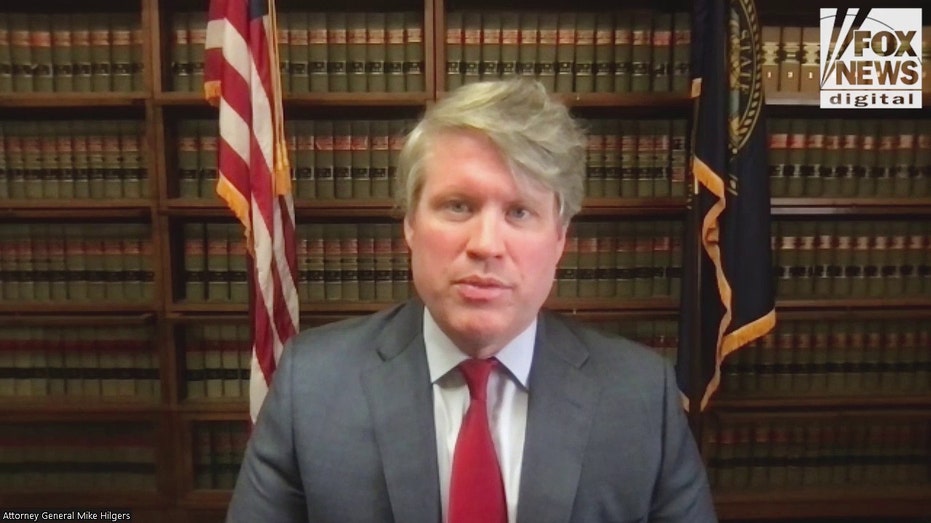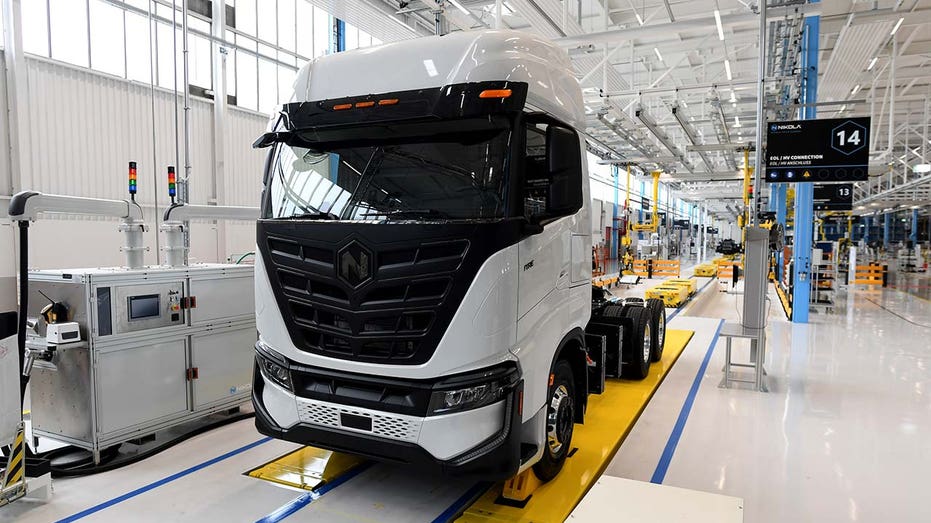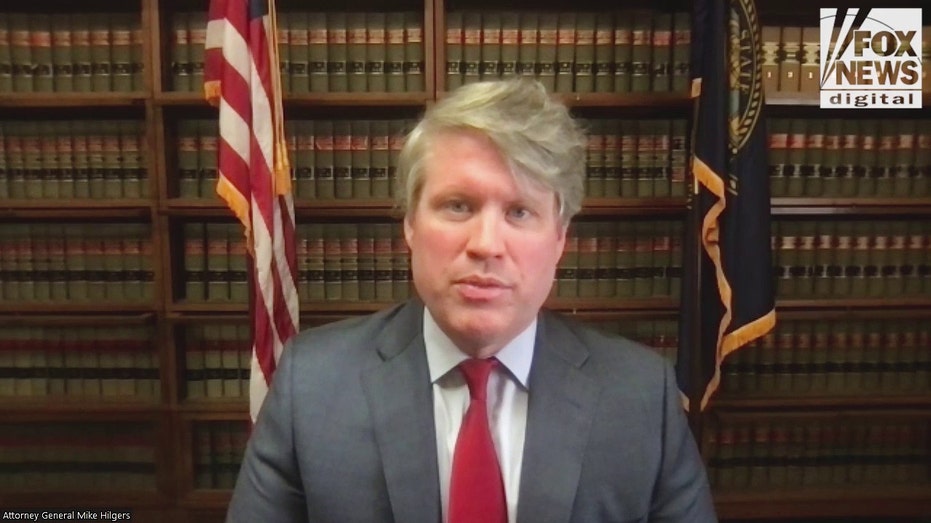Nebraska Attorney General Mike Hilgers spoke to Fox Business about his antitrust case against four of the largest heavy-duty truck makers who have partnered in a push for all-electric trucks.
Nebraska’s attorney general is fighting back against what he calls a “three-pronged attack” from truck manufacturers, California regulators and the Biden administration to force out diesel-powered engines in favor of electric trucks.
Attorney General Mike Hilgers this week filed a lawsuit against four of the nation’s largest heavy-duty truck companies, alleging they colluded in an “industry-wide conspiracy” with California environmental regulators to phase out medium and heavy-duty trucks that run on liquid fuel.
The lawsuit filed in state court names Daimler; Navistar International, a property of Volkswagen’s commercial truck division, Traton; Paccar; Volvo Group North America; and an industry trade group, the Truck and Engine Manufacturers Association, as defendants.
| Ticker | Security | Last | Change | Change % |
|---|---|---|---|---|
| DTRUY | DAIMLER TRUCK HOLDING AG | 19.25 | +0.23 | +1.18% |
| PCAR | PACCAR INC. | 114.75 | +0.70 | +0.61% |
| TRATY | TRATON SE | 31.07 | -1.46 | -4.49% |
| VLVLY | VOLVO AB | 24.67 | +0.29 | +1.19% |
Hilgers told Fox Business these four companies have openly admitted to “colluding in a classic antitrust way.”
CALIFORNIA DRIVERS BRACE FOR POSSIBLE GAS PRICE HIKE AFTER STATE REGULATORS APPROVE TIGHTER CLIMATE STANDARDS

Nebraska Attorney General Mike HIlgers has filed an antitrust lawsuit targeting heavy-duty truck manufacturers he claims have colluded to push out diesel-fuel engines in favor of electric vehicles. (Fox News Digital / Getty Images)
He alleges their goal is “to restrict — ultimately in its entirety — the output of gas-based vehicles and shift us away from those vehicles and towards an electric future on a time horizon that is both impossible or highly impractical, but also will lead to increased costs for logistics companies and ultimately consumers.”
As evidence, the lawsuit points to a July 2023 agreement reached between the California Air Resources Board (CARB), major truck manufacturers and the Truck and Engine Manufacturers Association called the Clean Truck Partnership, which gave manufacturers flexibility to meet the state’s strict emission standards.
The companies committed to adopting standards “that will require the sale and adoption of zero-emissions technology in the state, regardless of whether any other entity challenges California’s authority to set more stringent emissions standards under the federal Clean Air Act,” according to CARB. The board in turn agreed to give these companies “reasonable lead time” to meet its requirements before imposing new regulations.
CARB, Navistar, Volvo Group North America and Paccar declined to comment.
CALIFORNIA BOARD MOVES TO BAN GAS-POWERED CARS BY 2035 IN FAVOR OF ELECTRIC VEHICLES

Hilgers said the forced transition to all-electric heavy-duty semitrucks will drive up consumer costs and put logistics companies out of business. (Andreas Gebert/Bloomberg via Getty Images / Getty Images)
Hilgers characterized the agreement as an open admission of collusion to eliminate gas-powered vehicles.
“What they want to do is reduce output of gas and diesel-based trucks to zero within a blink of an eye,” he said, adding the parties involved want to “push it to an electric-based future without a vote of the people, without an action of Congress, without the free market.
“That ultimately is a classic antitrust violation.”
Nebraska seeks the termination of the Clean Truck Partnership agreement.
TESLA STOCK SURGES AFTER TRUMP WINS PRESIDENCY

California Gov. Gavin Newsom speaks at a press conference. (Jason Armond/Los Angeles Times via Getty Images / Getty Images)
In March 2023, the U.S. Environmental Protection Agency approved California’s plans to require a rising number of zero-emission heavy-duty trucks. California is still awaiting EPA approval for its Advanced Clean Fleets regulations on phasing in the use of zero-emission medium-duty and heavy-duty vehicles and light-duty package delivery vehicles. The rule would require manufacturers to only manufacture zero-emission medium- and heavy-duty trucks starting in 2036.
In May, Nebraska and 16 other states sued CARB over its clean fleets rule. Hilgers said a mandated transition to zero-emission vehicles would be a “radical change to our system” that would lead to higher prices, put several logistics companies out of business and add “a tremendous electrical load onto an already strained electric grid.” He also suggested the transition may not be feasible.
CLICK HERE TO GET FOX BUSINESS ON THE GO
California Gov. Gavin Newsom said last year that half of all heavy-duty trucks sold in the Golden State will be electric by 2035. State regulators intend to mandate by 2045 that all operations of medium- and heavy-duty vehicles be zero emission where feasible.
While the EPA under the Biden administration has acted favorably toward California’s plans, Hilgers told FOX Business he anticipates the incoming Trump administration “will have more common sense.”
Reuters contributed to this report.
